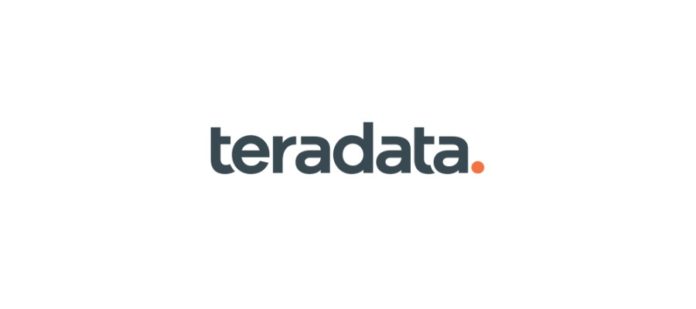The data analytics market is marked by constant change that has affected how companies everywhere operate and compete.
What does an executive who’s been in the data analytics business for many years think of this change and what do they predict for the future?
Sri Raghavan, an over 20-year veteran of the business, shared many thoughts with Datamation about the current state of the data analytics market, the problems that data analytics will tackle in the future, and even a few tidbits about why he thrives in a data career.
Sri Raghavan 
Raghavan is the director of data science and advanced analytics product marketing at Teradata, with responsibilities in the data science and advanced analytics solutions areas. He has over 20 years of experience developing analytics solutions, delivering product marketing and sales training programs, and overseeing data science and business intelligence (BI) initiatives across various sectors: big data, financial services, health care, pharmaceutical, local government, and management consulting.
More trends in big data and data analytics
Data analytics Q&A with Sri Raghavan
Building a data analytics career
Datamation: How did you first get started in or develop an interest in data analytics?
Raghavan: When I started teaching core undergraduate courses (while I was in graduate school in Pennsylvania, and then later in Wisconsin) in mathematics, statistics, econometrics, and business, I realized that I could be happy simply talking numbers, data, and technology. It was serendipitous really, and as I got pulled into ad hoc projects both at school and then later when I started working, it became second nature and I have not given up since then.
Datamation: What are your primary responsibilities in your current role?
Raghavan: I am part of the products organization here at Teradata, with responsibility for our core analytics solution and services. In my role, I am responsible for showing and telling customers about our analytics capabilities, creating and delivering a crisp set of messages about our solutions, providing enablement activities to our sales force, working with industry influencers to deliver our solution’s promise, understanding the nature and evolution of the market, and articulating a clear strategic direction for our company. And finally, [I] do whatever it takes to ensure customer satisfaction with our work, solutions, and services.
Datamation: How can you identify a data expert?
Raghavan: One of the first traits I look for is the ability to understand a problem (e.g., customer churn), and being able to clearly identify an analytic workflow to determine a path to inquiry. Then, I look at their ability to identify different kinds of data that could be used to ask critical business questions. Finally, I get a sense of the extent of their expertise by their overall analytics knowledge (e.g., algorithm knowledge, how they address data quality, etc.).
Companies that get data analytics right
Datamation: What makes Teradata unique as a provider of data software? What sets your solutions or approach apart from the competition?
Raghavan: Teradata has the crucial mission of enabling our customers to reach their maximum potential through the power of data. To this end, our core analytics platform, Vantage, with its pre-built analytics functionality, tight open source integration, a highly scalable and performant database, flexible instantiation on a multi-cloud and hybrid environment, and appeal to the widest constituency of analytics professionals (e.g., citizen data scientists, data scientists, business analysts, and the C-suite) makes this a unique solution in the market. All of Vantage’s ecosystem extensibility adds to its cachet as an industry-first solution that stands head and shoulders above the competition.
Datamation: What do you think makes a data analytics company or application successful?
Raghavan: Make your solutions available to anyone in the organization who wants to be data-driven and who can address the important problems of the day (e.g., delivering good patient outcomes, preventing financial fraud, creating a secure society and preventing crime, among others).
Datamation: Why does data analytics matter to the success of an organization?
Raghavan: Data is everywhere. Make it count. Data contains many unseen insights begging to be discovered, and taking actions based on these insights makes a material difference in our lives. To figure out those insights, one needs analytics, and when one applies intelligent analysis on the data, success becomes the norm.
Datamation: What is the biggest data mistake that you see enterprises making?
Raghavan: Not taking risks. Risks with how they view the data, analyze the data, making bold assumptions about the way their data environment is impacted, as well as risks with technology choices. Risks, when they pay off, are immensely satisfying. When they do not pay off, give unique opportunities to learn that hitherto would never have been created. Either way it is a win.
Trends and current events in data analytics
Datamation: What do you think are some of the top trends in enterprise data analytics right now?
Raghavan: Predictive modeling and operationalization, enterprise feature store, analytics ops, and AI modeling.
Datamation: What is data democratization/self-service analytics and why is it important?
Raghavan: It is the ability to create self-service analytics frameworks that are so intuitive in how they can be used that virtually anyone who is interested in data-driven decisions can find them without expensive external support. The more democratic analytics is, the more likelihood of smarter decisions which have a positive long term strategic impact.
Datamation: What do you consider to be important practices for ethical data collection and usage?
Full disclosure of data sources to everyone who would ask; careful scrubbing of personal identifiers, regulatory compliance, striving for full model explainability, and frequent internal audits of analytic algorithms.
Datamation: What do you think we’ll see more of in the data analytics space in the next 5-10 years? What areas will grow the most over the next decade?
Raghavan: AI will become a huge part of our daily vernacular. Smart cities and blockchain analytics are likely a big part of our future.
Datamation: How has the COVID-19 pandemic affected you, your colleagues, or your clients’ approach to data analytics?
Raghavan: The pandemic made collaboration and teamwork when it comes to analytics a priority. Ideation is a bit trickier, as it has required face-to-face collaborations in the past. However, the unanticipated benefit of the pandemic is that people are finding, and have found, creative ways of collaborating through social media, online meeting rooms, and virtual meetings in the comforting confines of their home offices without having to worry about the risks of contracting the virus while keeping everyone else safe.
Datamation: How do you think that data analytics can better be leveraged as a technology for global good (i.e., slowing climate change, alleviating poverty, ethical business practices, social justice causes, etc.)?
Raghavan: This is by far one of the largest areas of work that I have seen, not just in non-profit environments, but even among for-profit enterprises who want to deploy their not-too-inconsiderable analytics resources towards tackling some of the trickiest social problems, such as global warming or agricultural production shortfalls. I attend a Data for Good conference each year and present about some of the creative ways by which these problems are tackled and bold solutions derived.
An insider’s perspective on the data analytics industry
Datamation: How do you stay knowledgeable about trends in the market? What resources do you like?
Raghavan: I read voraciously. I speak to a lot of experts. I believe that when we stop learning, we may as well give up on a meaningful life. The more I learn, the more I realize how very little I know of how the world works – not just in analytics – and that spurs me to learn more.
Datamation: How have you seen the data market change since you first started? How have the technologies, conversations, and people changed over time?
Raghavan: Given that it has been over 20 years since I started, I have seen that the only constant is change. Technologies have made it easier to load large amounts of data of any type, processing speeds have become faster, and new analytic techniques can now be put into action without additional cost. But there have also been certain important markers that have not changed. Human curiosity has always been the hallmark of progress – and that has thankfully remained ever so vibrant. Teamwork wins prizes, and that too has been a mainstay. Finally, never underestimate the power of the so-called old-fashioned values of kindness, helpfulness, and compassion. It goes a long way in making this world a better place and that has not changed one bit. I hope that always is the case.
Datamation: What makes Teradata a unique place to work?
Raghavan: There are three key areas I will say are important to me that Teradata provides. First, Teradata encompasses a highly intelligent workforce, with many fun people who make you want to come to work every day. Additionally, Teradata offers a plethora of interesting customer business use cases to choose from and opportunities to make an immediate impact. Finally, Teradata ensures an overall company culture that is suffused with integrity, ethics, and a shared sense of responsibility that ensures we do all that we can to do right by our customers, partners, prospects, analysts, employees, and the society at large.
Datamation: What do you consider the best part of your workday or workweek?
Raghavan: There are many things that I do that I love, but one thing I look forward to every time it happens is talking to a customer or a prospect. Customers teach you a lot of things about your product, about the market, about their unique use cases, and many times you understand things about yourself that you can work on to become a better person. Easily my favorite.
Datamation: How do you like to help or otherwise engage less experienced data professionals?
Raghavan: I do not know how much I have actually helped anyone, but I try to offer constructive feedback, I mentor many junior (experience-wise) colleagues, I help place people who want to be in my line of work by connecting them to other professionals that I have the pleasure of knowing. Finally, when anyone asks me to share my professional knowledge or content that may help them, I do it. That is how many people have helped me in my own career and I am just merely passing that favor along.
Outside of work
Datamation: What do you like to do in your free time outside of work?
Raghavan: I read a lot of fiction (mystery is my favorite genre, but I read a lot more than just that). I write poetry (usually bad) for my own reading pleasure. There is something oddly comforting about creating rhyming phrases for no other reason than to feel a sense of pride about how well some words go together. I listen to a lot of music and in addition to classic rock, I listen to a lot of Indian and African music. There is something otherworldly about many of the foreign musical instruments that create a plethora of new sounds that I get lost in.
Datamation: If you had to work in any other industry or role, what would it be and why?
Raghavan: I’d probably be unemployed forever if I tried my hand at things that I have no expertise in. That said, I’ve always wanted to be a stand-up comedian. Alas, I neither have the facility to turn a clever phrase nor does my funny bone appeal to anyone else not living inside my head.
Datamation: What are you most proud of, personally and professionally?
Raghavan: Professionally, when I hear a customer say that they have benefited from my expertise, that is a huge source of pride. Personally, I am proud of my 11-year-old daughter and my incredible wife. They are vested with deep reserves of patience and understanding towards me that I will forever be grateful for.
More from Raghavan and data experts: Data Analytics Market Trends 2021




